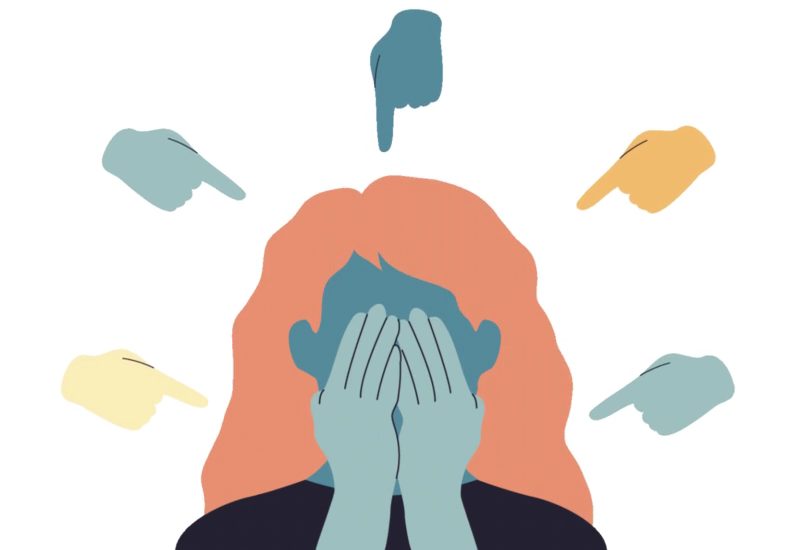Table of Contents
ToggleDiscrimination Therapy
Discovers a safe space for healing, growth, and empowerment with the best therapist for discrimination on the Expathy app. Our carefully curated selection of therapists specializes in addressing discrimination-related challenges, ensuring you receive the support you need to navigate these complex experiences.
At Expathy, we understand the profound impact that discrimination can have on mental health and well-being. That’s why we’ve partnered with a diverse group of compassionate and highly skilled therapists who are dedicated to helping individuals like you overcome the effects of discrimination.
With the Expathy app, you have the flexibility to connect with your best therapist for discrimination anytime, anywhere, making therapy accessible and convenient for your lifestyle. Whether you prefer text-based messaging, voice calls, or video sessions, our platform ensures that you can engage in therapy on your terms.
-
- Say good-bye to therapy waiting lists.
- Find reasonably priced packages that are suited to your needs.
- Take advantage of long-term therapy programs for enduring improvement.
- You can relax knowing that everything you and your committed therapist discuss is kept private.


Now It's Easy To Find A discrimination counseling online
Answer the Questions
Matching you with our licensed therapists is a priority for us, as your well-being is of utmost importance..
Select your therapist
Choose from our selection of licensed therapists who specialize in various areas of expertise
Book the free session
No need to wait on a waiting list. Get immediate access to a therapist with a free session.

What is the Discrimanation Therapy?
Discrimination Therapy is a type of therapy that aims to provide individuals with skills to cope with discrimination. This therapy supports individuals in coping with their experiences of discrimination, developing emotional resilience, and strengthening their own identity. Discrimination can occur based on race, gender, sexual orientation, age, disability and many other factors. Discrimination Therapy teaches individuals appropriate strategies to combat these various forms of discrimination.
This therapy aims to strengthen the emotional well-being and spiritual health of the individual. Therapists can use a variety of techniques to help individuals cope with discrimination. These techniques may include individual therapy sessions, support groups, strengthening exercises, and discrimination awareness-raising activities. Discrimination Therapy helps individuals develop a healthy coping mechanism by providing supportive guidance in the process of confronting discrimination, and thus, individuals move forward to overcome these difficult experiences stronger.
Basic Principles of Discrimination Therapy
The basic principles of Discrimination Therapy aim to guide individuals through the process of addressing and coping with their experiences of discrimination. These principles are the cornerstones of the therapy process and support effectiveness in combating discrimination.
- Empathy and Understanding: Therapists prioritize empathy and understanding to understand how individuals cope with discrimination. They respond sensitively to the individual’s experiences.
- Providing a Safe Environment: Creating a safe environment during the therapy process makes it easier for individuals to open up, express their feelings and share their experiences.
- Supportive Approach: Experiences of discrimination can often be emotionally challenging. Therapists focus on strengthening individuals’ emotional well-being by providing support.
- Personal Empowerment: They encourage individuals to discover their inner strengths and resources in the fight against discrimination. It is important for the individual to recognize and use his or her own strengths.
- Diversity and Cultural Awareness: Experiences of discrimination often relate to cultural, racial or sexual identity. Therapists tend to personalize therapy by understanding these differences and paying attention to the individual’s cultural background.
- Flexibility in Practice: Therapists flexibly adapt therapy methods based on experiences of discrimination and the needs of the individual.
These principles underlie anti-discrimination therapy and focus on emotional resilience and empowerment while helping individuals cope with these difficult experiences.

Strategies for Coping with Discrimination
The process of discrimination therapy provides support to individuals to develop coping strategies for their experiences of discrimination. This process aims to strengthen individuals’ emotional well-being, increase their ability to cope with discrimination, and create a healthier lifestyle.
Strategies for dealing with discrimination may include:
- Emotional Awareness: Individuals learn mindfulness techniques to understand and manage their emotions. This is important for identifying emotional reactions and redirecting them in a positive way.
- Empathy and Support Groups: Meeting with people who have similar experiences, gaining empathy and support can be therapeutic. Support groups provide an environment where individuals support each other.
- Problem Solving Strategies: Effective problem solving is important in combating discrimination. The therapist guides individuals to develop problem-solving skills.
The process of discrimination therapy offers individuals the opportunity to address their experiences of discrimination and gain skills to cope with these experiences in a healthier way. This process can help individuals achieve emotional empowerment and live a healthier life.
Why Choose Us
Experience transformative therapy for discrimination with our specialized app for individuals facing discrimination. We understand the unique challenges and emotional toll that discrimination can have on your well-being. Our app provides access to a diverse team of licensed therapists who specialize in discrimination therapy, ensuring you receive the support you need.
Our therapists possess in-depth knowledge and expertise in addressing various forms of discrimination, including racial, gender, ethnic, and LGBTQ+ discrimination. They provide a safe and empathetic space where you can openly discuss your experiences, process your emotions, and develop coping strategies to navigate the impact of discrimination on your mental health.
We prioritize effective communication and cultural understanding in therapy. Our app offers discrimination therapists who are proficient in multiple languages and have a deep understanding of different cultures. This ensures that you can communicate comfortably and that your therapist truly comprehends the unique cultural aspects surrounding your experiences of discrimination.
With a focus on discrimination, our app provides a comprehensive range of resources tailored to address the specific challenges you may encounter. From guided exercises and educational materials to interactive discrimination therapy sessions and community support, our app offers a holistic approach to discrimination therapy, empowering you to heal, grow, and reclaim your well-being.
Rest assured that your privacy and confidentiality are of utmost importance to us. Our app provides a secure platform where you can engage in therapy sessions, knowing that your personal information is protected.
By choosing our app, you also join a supportive community of individuals who have faced or are facing discrimination. Connect with others, share experiences, and gain support in forums and groups specifically designed to foster a sense of belonging and empowerment.
Don’t let discrimination hold you back. Embrace our specialized discrimination therapy app and prioritize your mental health. Together, we will navigate the challenges of discrimination, foster resilience, and empower you to lead a life free from the limitations imposed by discrimination.
Frequently Asked Questions
Discrimination therapy is a specialized form of therapy that focuses on addressing the psychological and emotional effects of discrimination. It aims to help individuals who have experienced discrimination to process their emotions, develop coping strategies, and build resilience in order to navigate the impact of discrimination on their mental well-being.
Discrimination therapy offers several benefits, including:
Emotional Support: Therapy provides a safe and non-judgmental space where individuals can express their feelings, process their experiences, and receive validation and support from a trained professional.
Coping Strategies: Therapists help individuals develop effective coping strategies to manage the emotional distress caused by discrimination and build resilience in the face of adversity.
Empowerment: Therapy empowers individuals to challenge internalized beliefs and societal messages, fostering a stronger sense of self-worth, self-acceptance, and empowerment.
Improved Mental Health: Discrimination therapy can lead to improved mental health outcomes by reducing symptoms of anxiety, depression, and stress related to experiences of discrimination.
Personal Growth: Therapy helps individuals gain insights into themselves, their values, and their goals, supporting personal growth and enhancing overall well-being.
The duration of discrimination therapy can vary depending on several factors, including the individual’s specific needs, the severity of their experiences, and their progress throughout therapy. Some individuals may find significant relief and achieve their therapeutic goals in a shorter time frame, while others may require longer-term therapy to address deeper emotional wounds and promote lasting change.
In a discrimination therapy session, you can expect a safe and confidential environment where you can openly discuss your experiences of discrimination. Your therapist will actively listen, provide support, and guide you through various therapeutic techniques and interventions to help you process emotions, challenge negative beliefs, develop coping strategies, and build resilience. Therapy sessions may involve conversations, reflection exercises, skill-building activities, and homework assignments tailored to your specific needs.
You can find a therapist who specializes in discrimination therapy by using online therapy directories, searching for therapists who list discrimination as an area of expertise. Additionally, you can reach out to mental health organizations or consult with your primary care physician for referrals. Online therapy platforms and apps often have filters that allow you to search for therapists with expertise in discrimination-related issues. It’s essential to review therapists’ profiles, credentials, and client reviews to ensure they align with your specific needs and preferences.
Discrimination therapy has been shown to be effective in helping individuals address the psychological and emotional impacts of discrimination. It provides a supportive and empowering space for individuals to process their experiences, develop coping strategies, and build resilience. The effectiveness of therapy may vary depending on the individual’s engagement, the therapeutic relationship, and their commitment to personal growth and healing.
Insurance coverage for discrimination therapy varies depending on the insurance provider and the specific policy. Some insurance plans may offer coverage for therapy services, while others may have limitations or exclusions. It is recommended to contact your insurance provider directly to inquire about coverage for discrimination therapy and to understand any out-of-pocket expenses, copayments, or deductibles that may apply.
Yes, discrimination therapy can be conducted online through secure platforms that offer video sessions, voice calls, or text-based messaging. Online therapy provides convenience, flexibility, and accessibility, allowing individuals to engage in therapy from the comfort of their own space and fit sessions into their schedules. Online therapy platforms often have therapists specializing in





